Mount & Blade 2: Bannerlord was worth the wait
It's not finished, it's still janky, but it's brilliant all the same.
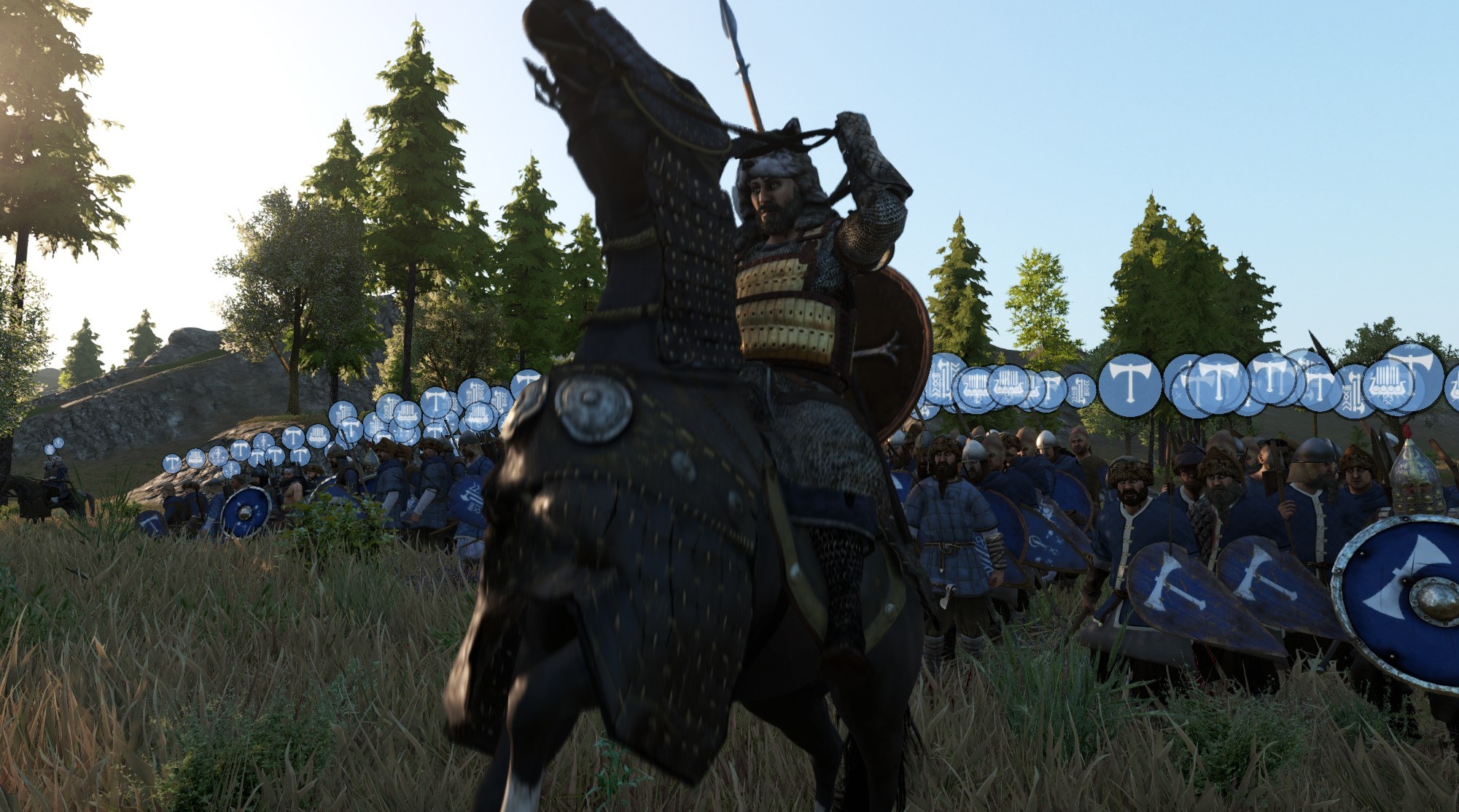
Rugar, my beefy warrior in Mount & Blade 2: Bannerlord, is a lot like the game he inhabits. Rugged, clumsy, ambitious—he's great at smacking people with his huge axe, at least when he isn't falling off his horse or hitting a tree, but he really dreams of sitting on a throne and ruling the world. He might get there.
His peers similarly dream big. A long list of conniving nobles squabble over this Early Access sandbox, criss-crossing the picturesque map with their armies as they rush towards sieges, battles and other emergencies. It's a world that never rests, with borders constantly being redrawn through wars and deals between monarchs. The map wouldn't look out of place in Total War, but it doesn't exist exclusively to be conquered.
Bannerlord is an RPG, a life sim, a real-time tactics affair and a grand strategy game all rolled into one. You're just one person, not especially noteworthy, in a world full of much more important people, and it's up to you where you go from there. You're encouraged to start swinging your sword and commanding armies at first, but you can eschew the bloody life of a mercenary for the more sedate and lucrative life of a trader, or maybe a blacksmith who uses their earnings to establish smithies in every major city, cornering the sharp object market.
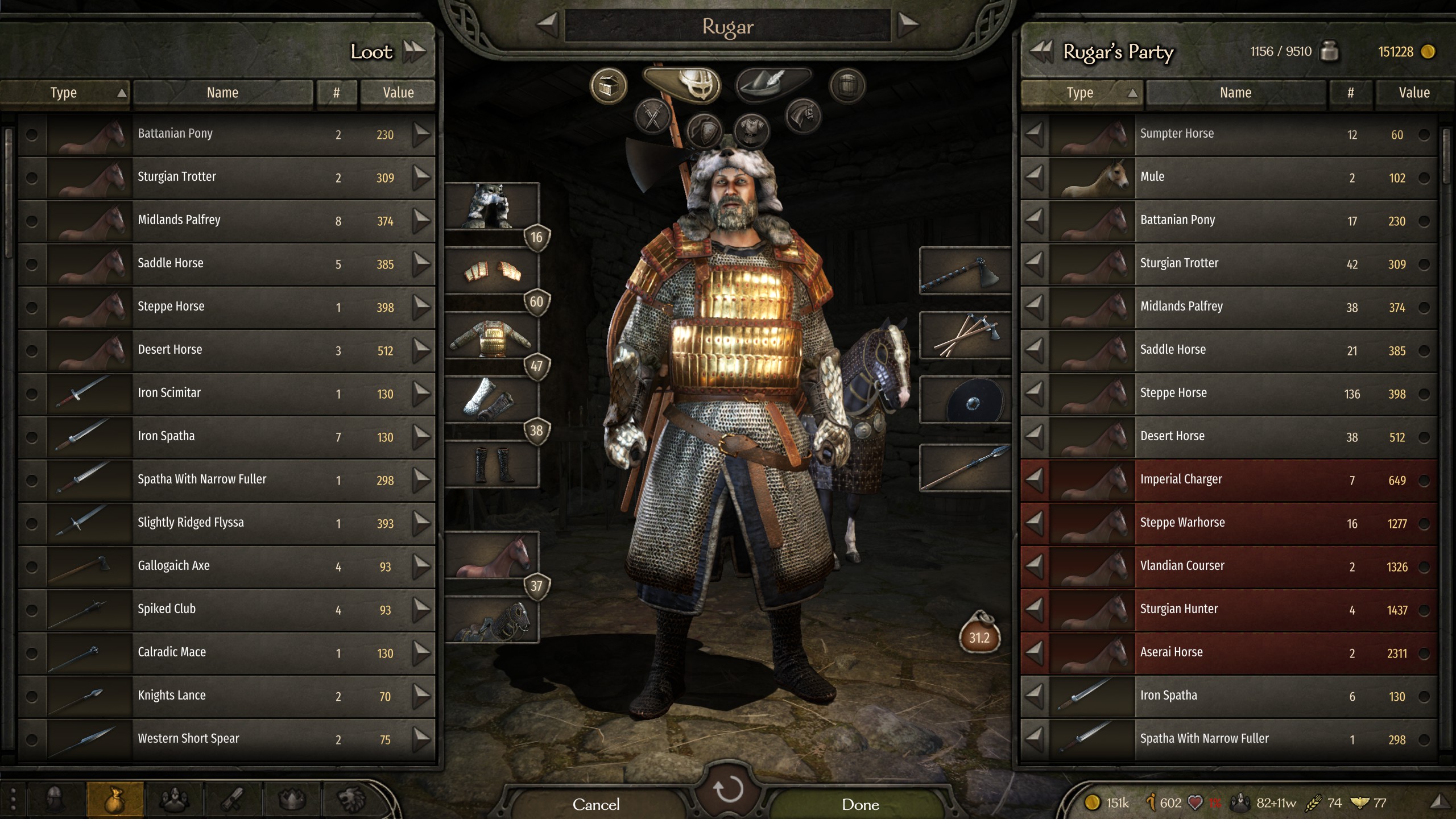
While some guidance is offered through a tutorial, tips and quests, this is still a sandbox where you're free to approach it however you like, just trying to live your best medieval life. This isn't new to Bannerlord, but this time the other roles feel like they're on equal footing with warfare, rather than ancillary features or an alternative to the main course. If you want to win Calradia's Best New Blacksmith trophy, you'll have just as much to do as a general does.
Mind your business
You don't have as many life and death decisions to make when you're calculating the logistics of ferrying ore from the Southern Empire to Sturgia in the north, sure, but while people are losing their heads, you can lose yourself in maths. Figuring out how many horses you'll need for the journey, how much food will be consumed and what profits you can expect to make might not be as exciting as combat, but there's still a thrill to be had in being a savvy trader. My first big windfall came when I offloaded a ludicrous amount of grain, usually the cheapest thing in the game, in a kingdom ravaged by war. What grain hadn't been stolen by enemy armies had been taken by the kingdom's own troops, jacking up the price by nearly five times. The cash from my war profiteering almost made up for my guilt.
The liveliness of Bannerlord's simulation is even more apparent when you're just participating rather than trying to run the show. Whether you interfere or not, Calradia's kingdoms will keep on fighting, making up and changing the continent; caravans will keep taking advantage of shortages, making risky trips through warzones and affecting the dynamic economy; and life will just carry on, regardless. Reacting to that instead of determining the course of the world's future—which you can also do—is actually quite liberating. There's something appealing about almost being an NPC, but in this case you're an NPC that still has agency.
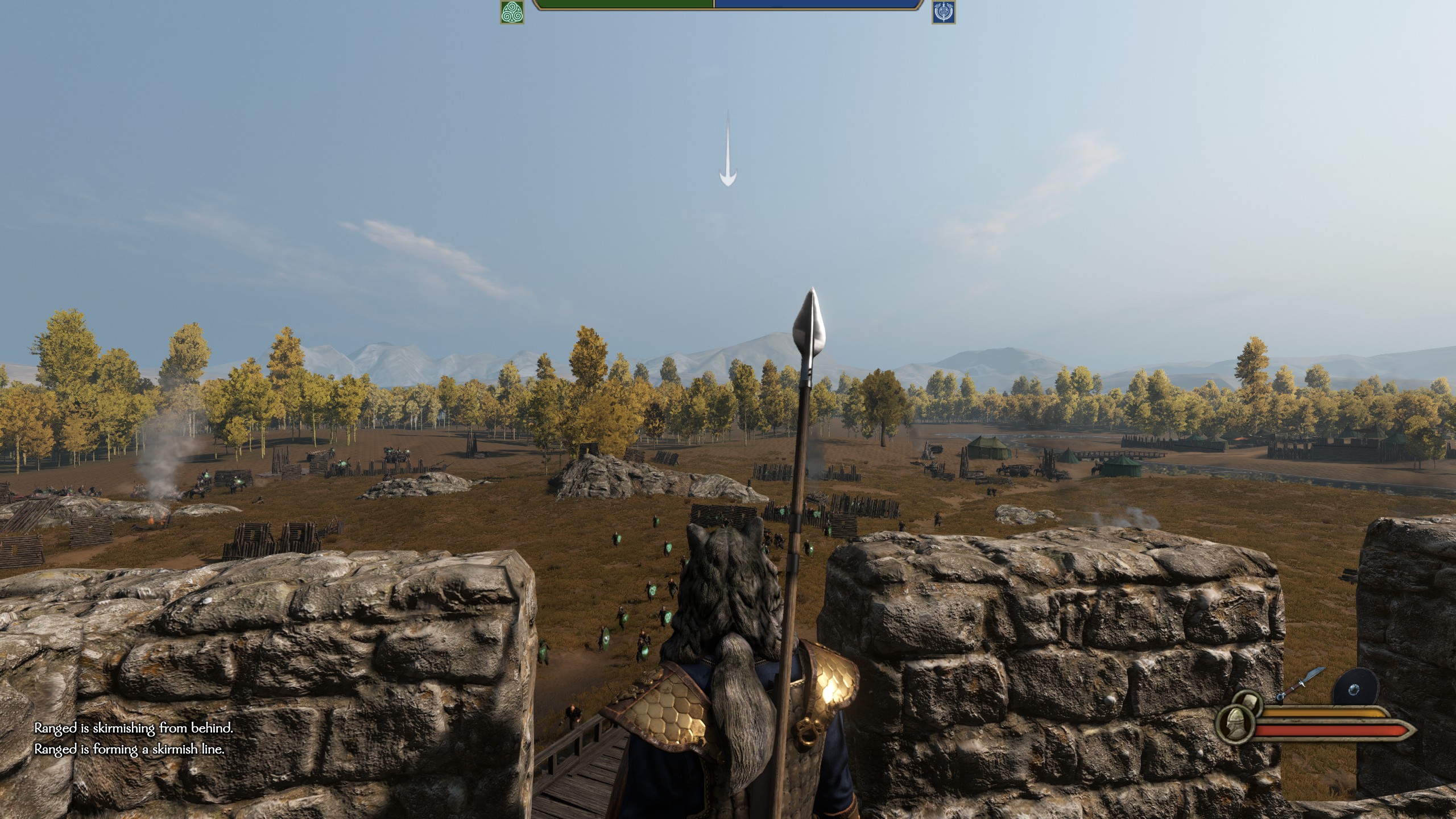
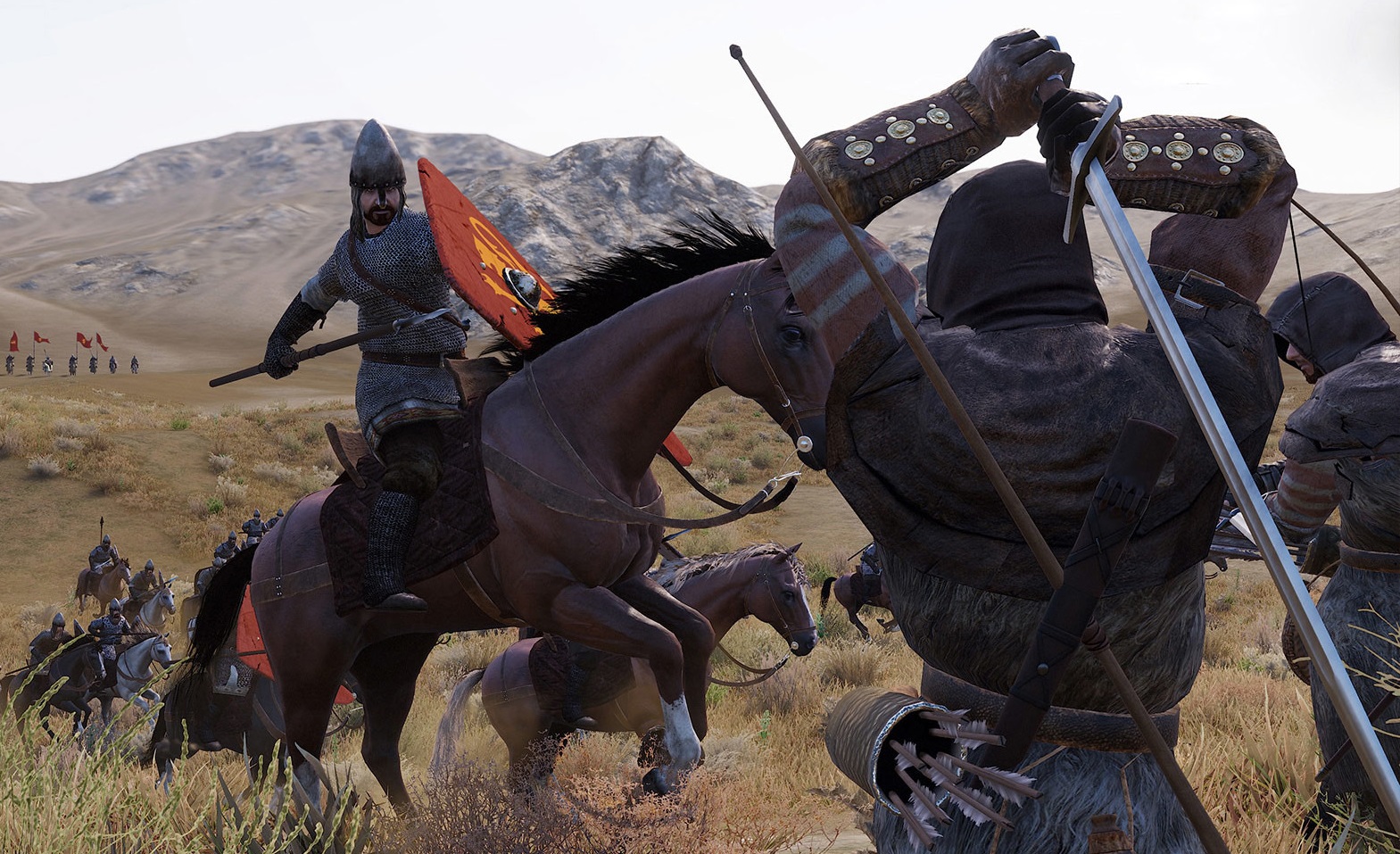
Bannerlord cheats: Get rich and dominate battles
Bannerlord companions: How to recruit the best
Bannerlord tips: Our full beginner's guide
Bannerlord difficulty: Which to choose
Bannerlord mods: The best player-made additions
Bannerlord marriage: How to start a family
Bannerlord combat: Battle and 1v1 tips
Bannerlord money: Get rich quick
Bannerlord factions: Which should you choose?
Bannerlord workshop: Make easy money
Bannerlord caravan: How best to trade
There's no need to settle for one career, of course. I started out as a wandering mercenary, but dwindling funds made me start up a side gig in trading, and the profits from that went into a few businesses. After spending a lot of time fighting on behalf of Sturgia, I decided to swap my mercenary contract for a vassalage, formally joining the Kingdom as an up and coming lord. Each kingdom has its own identity that extends to the clothes they wear and weapons they use, while their locations determine a lot of the trade goods they have available. So there are practical differences between them as well as all the equally important world building, of which there is a fair amount, most of it expressed organically rather than crammed down your throat through laborious exposition. Joining Sturgia also gave me my first taste of politics. I went from hitting nameless soldiers with my axe to ruling castles and voting on kingdom-wide policies.
The biggest gaming news, reviews and hardware deals
Keep up to date with the most important stories and the best deals, as picked by the PC Gamer team.
Influence is a new resource that represents your political clout. Before throwing your lot in with a kingdom, it only determines how much they'll pay you for mercenary work, but as a member of the kingdom it becomes your path to power. When territory is conquered, the nobles decide how to divvy it up, and you can spend your Influence to favour a friend or swing the vote your way, and in the same way you can use it to shape the kingdom by proposing policies that provide you with favourable bonuses. It also lets you invite other allied armies to join you, giving you a huge horde to command. If you want to become one of the kingdom's top political movers and shakers, Influence gives you a very clear route, though throwing your weight around will also net you some new enemies and grudges as nobles get knocked aside in your wake.
Bannerlord distills this complexity into a series of menus and a UI that, while still needing some work, takes some of the strain off you when you're trying to juggle all these different jobs. If you want a more immersive RPG experience, you can explore locations on foot in third-person, but nearly everything, from talking to NPCs to managing a kingdom, can be done without leaving the map screen.
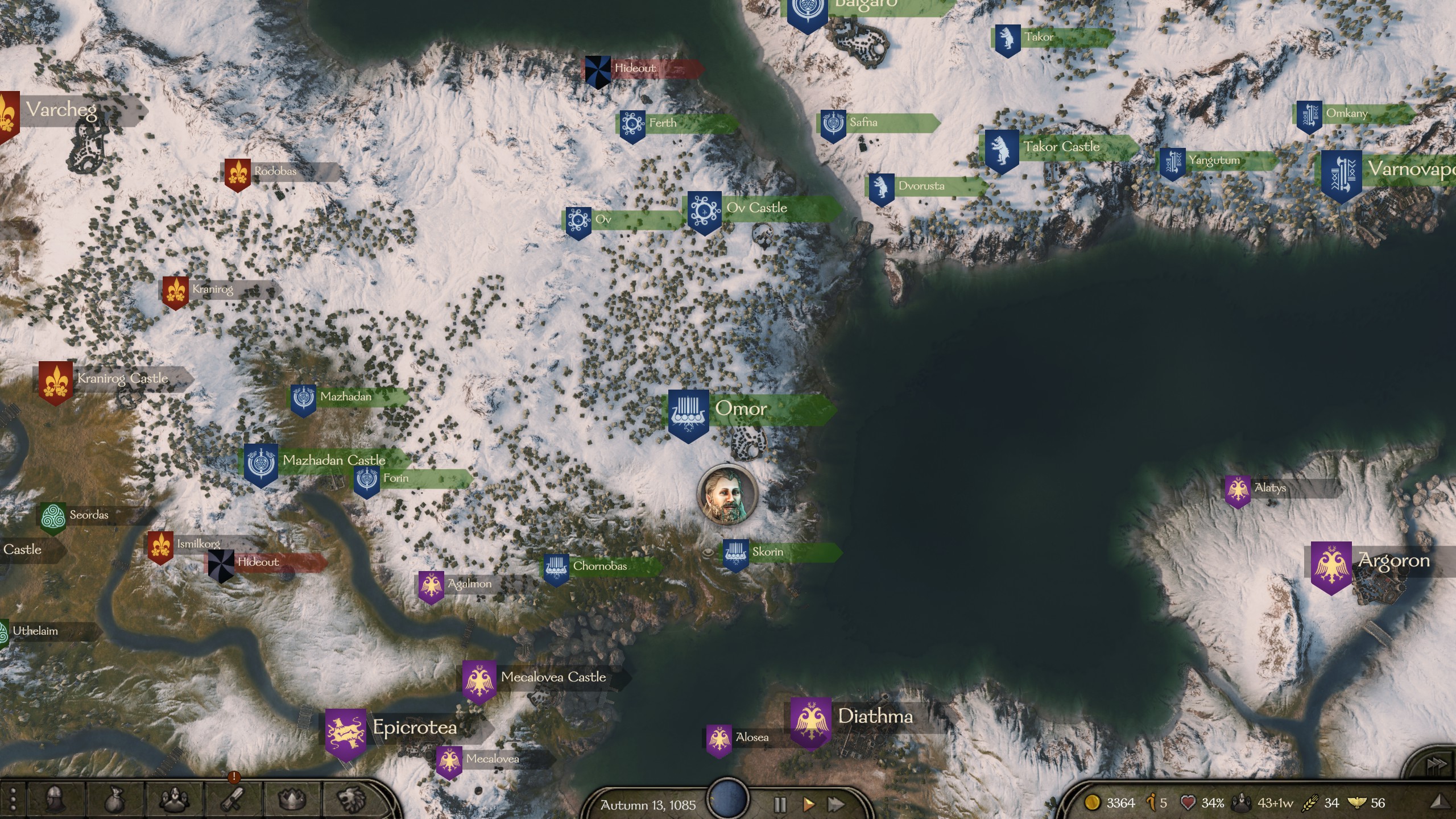
There's a lot to do in one lifetime, but thankfully you've got extras to spare. Characters die of old age and, if you've activated the feature, in battle, but rather than another obstacle to deal with, it actually supports the new dynastic layer. Where Warband was all about achieving glory for yourself, the broad objective of Bannerlord is to create an enduring clan, and to do that you can find yourself a spouse and start having children.
On its own, marriage feels a bit half-baked at the moment. You find someone you fancy, win a couple of formulaic interviews and then pay a dowry—congratulations, you're hitched! But it doesn't exist in a vacuum; with marriage you get a new member of your clan who can fight alongside you and your troops, or hang back and govern a castle. Pretty soon after shacking up, you'll start noticing little bundles of joy appearing in the clan menu, who'll then grow up to lead their own armies and possibly even rule the clan. It contributes to a deeper game, despite being a bit underdeveloped.
Build-a-bannerlord
Mount & Blade veterans will notice a few other new additions, but Bannerlord is more concerned with expanding and refining what's already there. This begins right at character creation. Like Warband, your character is built by answering questions about their past, but now you can immediately see the results of your choices and how they'll change your character as you select them. Rugar's parents, for instance, were a lord's companions, which meant he grew up riding and learning to fight with two-handed weapons, and he's got some extra social skills. The flavour is still all there, but the process is clearer.
After character creation, planning and practice are required to level up skills. If you want to get better with two-handed weapons, you'll need to go out there and start murdering people with them. Before that, however, you'll need to spend points you get when you level up to unlock your potential in that skill. It's not the most intuitive progression system, but it ends up feeling like a middle ground between the organic approach of something like The Elder Scrolls and the more deliberate progression taken by the majority of RPGs.
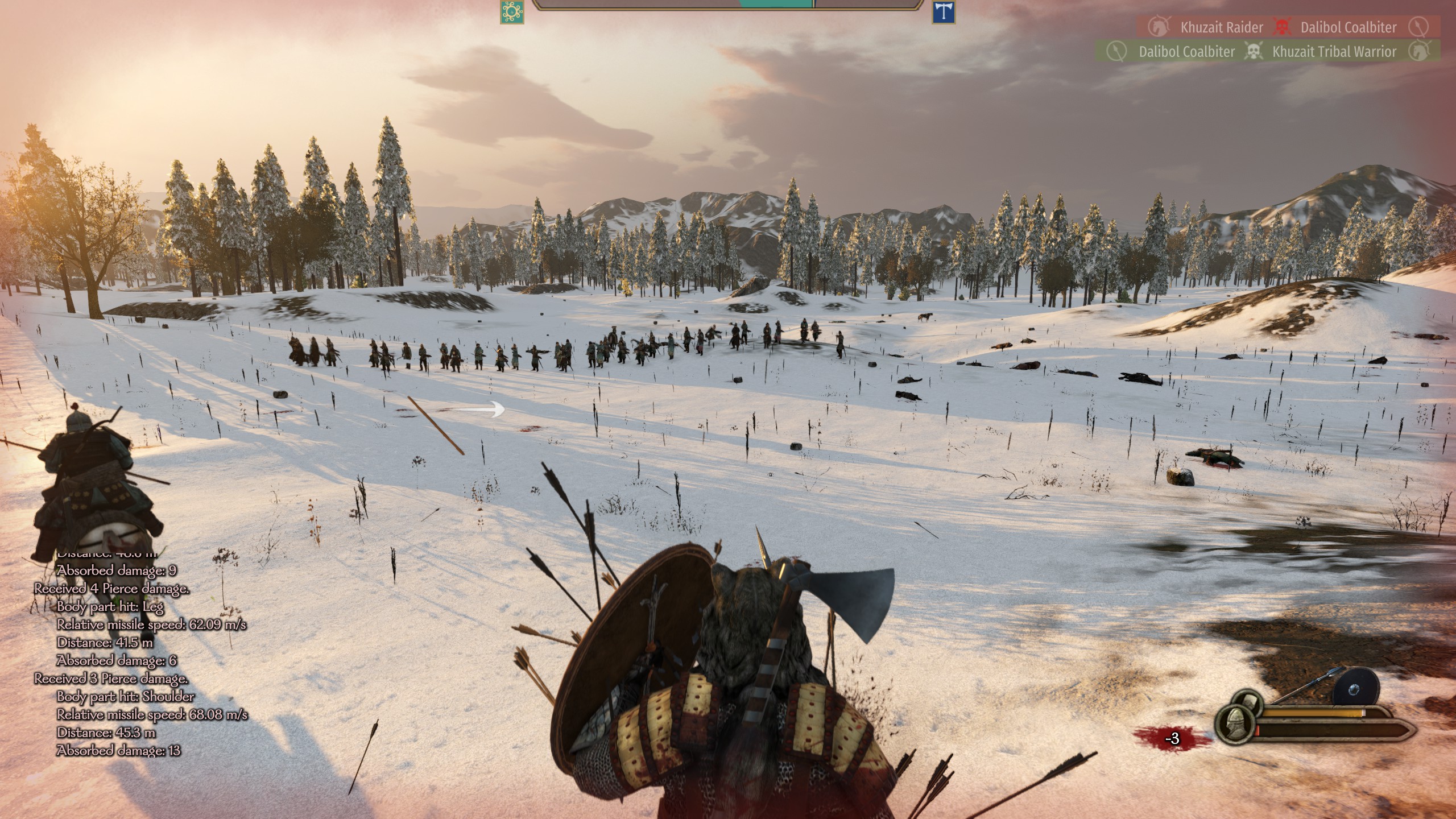
Mount & Blade's personal combat style, where you use your mouse to control the directions of your strike, isn't the revelation it was back when it first appeared. Chivalry and Mordhau both show it up, but neither of them gives players entire armies to control. And there's still a lot to master. Though it sometimes veers into the slapstick as soldiers get stuck on trees or confused because you keep circling them and slapping them on the arse, these are still skill-based fights with nuanced weapons that take time to master.
Most fights take place in the middle of much larger battles and sieges, which you can also hop into directly through custom battles and the four chaotic multiplayer modes. As you level up your clan by generating renown from battles and quests, you'll be able to recruit more and more troops, as well as randomly-generated companions with backstories, a few personality traits and the ability to lead their own armies or govern your fiefs. Even before your clan reaches higher tiers, you can get involved in the properly titanic clashes by joining the army of another lord, with hundreds and sometimes thousands of warriors hacking away at each other.
Point and click
This is when the series' familiar jankiness is really on display, as the AI tries to make sense of the bewildering mess. It's a lot more reactive and skilled at threat assessment than Warband's AI, but it does have a bit of trouble. During these battles, you've got to look out for yourself as well as your troops. If you want, you can just tell all of them to get stuck in and then join them, or you can diligently assign the various groups under your command specific orders, taking advantage of the terrain, protecting vulnerable flanks and tempting enemy armies into traps. Your troops ain't too bright, but you've got a great deal of control over your army, with just as many options at your disposal as you do in pure strategy games. Compared to some, you've got even more.
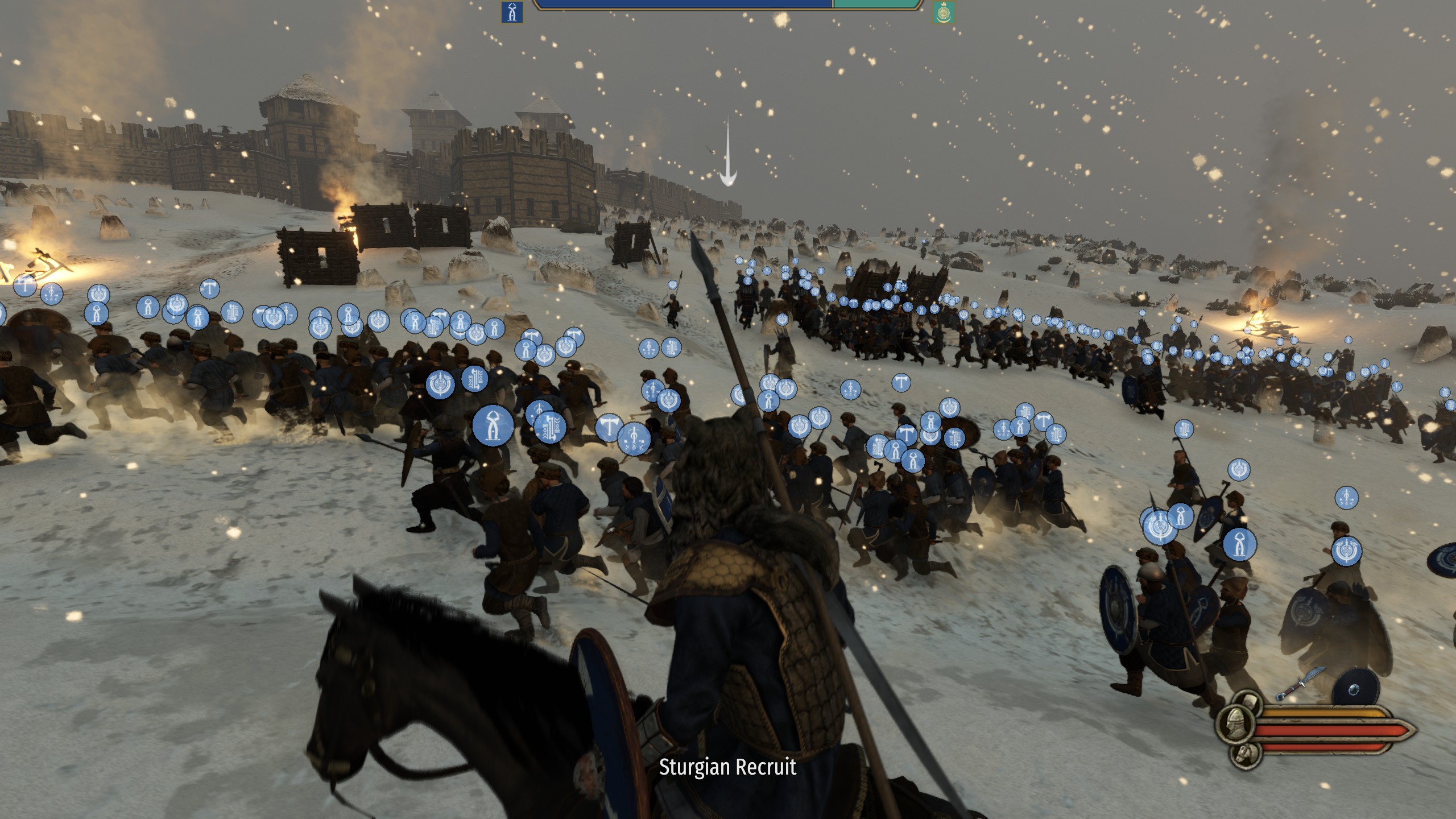
I can't get enough of the sieges. Charging up to walls as arrows and stones rain down from above, climbing up ladders and siege towers as men topple off them, desperately trying to push through the throng of soldiers so you can actually hit something with your axe. They're confusing and frantic and sometimes you just get stuck in the mosh pit the whole time, but they're sieges—what else should they be? Nothing else in Mount & Blade offers a greater sense of just being one person in a bloody meat grinder.
The excitement of these sprawling, bloody brawls is somewhat undermined by performance issues and bugs, two of the most notable reminders that Bannerlord is still around a year away from a full launch. Aside from the dodgy pathfinding and a few freezes, my time with the game wasn't too rocky, but I did struggle a lot with larger sieges. Getting stuck in the scrum often tanks the frame rate, something no fiddling with settings seems able to solve. Others players have also reported more significant performance issues and progress-halting bugs. Promisingly, however, TaleWorlds has been quick to start fixing them.
Those issues aside, Bannerlord doesn't feel much like an Early Access game. This isn't because it feels finished or balanced, which it absolutely doesn't, but because there's already so much for you to lose yourself in. You could fill multiple games with it. Even after a week of exploring Calradia, there are plenty of avenues I've barely ventured down, and this is just the beginning. Mods are already appearing, and we've got around a year of updates ahead of us. There's no harm in waiting for it to leave Early Access, but Bannerlord is already a capable sandbox, primed to spit out all sorts of emergent stories and infinite battles.

Fraser is the UK online editor and has actually met The Internet in person. With over a decade of experience, he's been around the block a few times, serving as a freelancer, news editor and prolific reviewer. Strategy games have been a 30-year-long obsession, from tiny RTSs to sprawling political sims, and he never turns down the chance to rave about Total War or Crusader Kings. He's also been known to set up shop in the latest MMO and likes to wind down with an endlessly deep, systemic RPG. These days, when he's not editing, he can usually be found writing features that are 1,000 words too long or talking about his dog.

